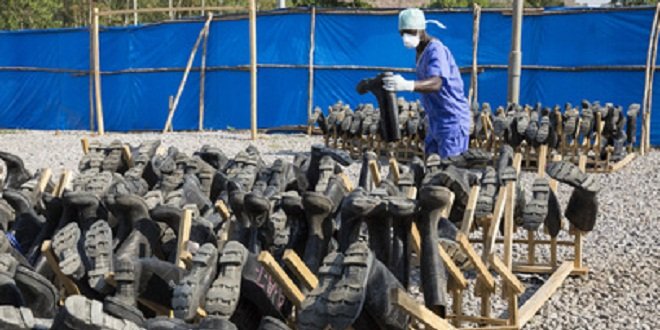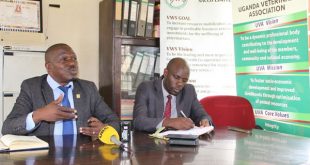
Liberia tests mystery illness after 11 unexplained deaths
Monrovia, Liberia | AFP | Liberia said Friday that samples from people struck down by a mystery illness are being tested abroad after 11 unexplained deaths, though Ebola has been ruled out.
The unidentified illness has affected 19 people in Greenville, southeastern Liberia, who began showing symptoms on April 24, the World Health Organization (WHO) confirmed.
Eleven people died in the community and seven more have been hospitalised since then, the WHO said in Geneva, with one more discharged.
Liberia’s health ministry and the WHO have confirmed the disease is not Ebola, the hemorrhagic fever that killed thousands in a recent west African epidemic, despite some similar symptoms.
“We have taken blood samples, and what we are going to do is to send this sample out of the country to determine what is really wrong with them,” health ministry spokesman Sorbor George told AFP.
George was only able to confirm nine deaths.
“We are under pressure from the families who want to know what is wrong,” he added. “What we did first was to run the Ebola test. All were negative. So we are sure that it is not Ebola.”
A WHO briefing in Geneva said the illness caused fever, vomiting, headache and diarrhoea, and a rapid response team has been deployed to investigate a potential link among the cases who attended the funeral of a religious leader.
The police are assisting with investigations, the spokesman said.
The outbreak of Ebola in west Africa began in December 2013 and of three countries affected it hit Liberia hardest. More than 29,000 were infected, estimates said, and a third of those died.
Many Ebola survivors continue to suffer high levels of shame and discrimination, exacerbated by findings that the virus can stay in some parts of the body for at least nine months after a patient has recovered.
 The Independent Uganda: You get the Truth we Pay the Price
The Independent Uganda: You get the Truth we Pay the Price


